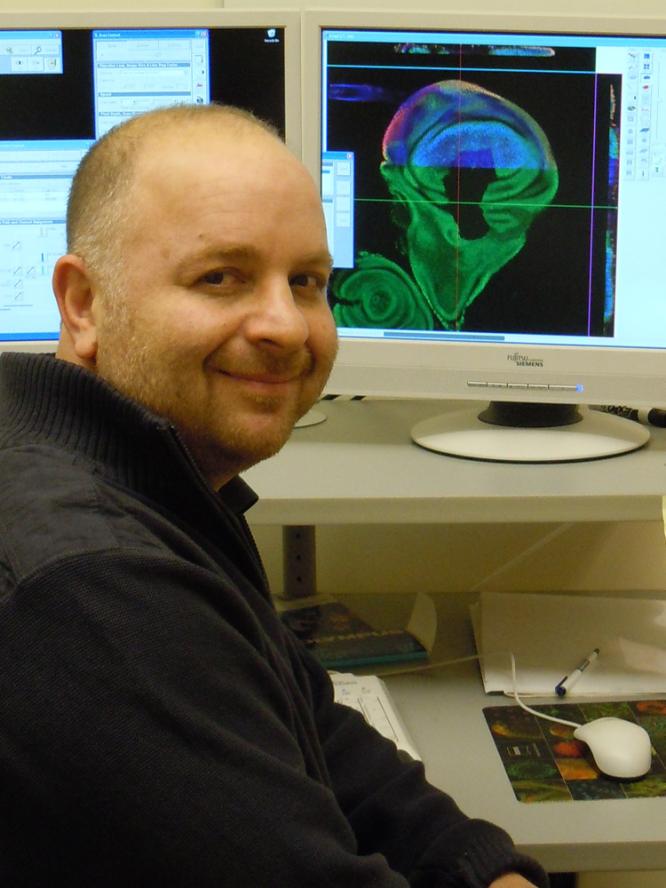Victor Hatini

Home Town: Jerusalem, Israel
Prior Degrees:
- BS, Biology, Hebrew University
- MSc, Molecular Genetics, Weizmann Institute of Science
- PhD, Molecular Biology, Cornell University Medical College
Programs:
What is the ultimate goal of your research?
Research in my laboratory is focused primarily on pattern formation - the developmental processes that determine the morphological features and cell types of tissues, organs and entire organisms. The model system that we use in the lab is the fruit fly Drosophila melanogaster. This model system is amenable to sophisticated genetic and genomic methods for dissecting complex developmental processes at the molecular and cellular level. For example, we have the tools to express any gene or block gene function at any place at any time during development in order to understand its function. We have previously explored how various signaling pathways (Hedgehogs, Wnts, EGFR, Notch, JAK/STAT) establish the detailed pattern of cell types across each segment of developing embryos. More recently, we initiated a new research program to understand how the various parts of the appendages of the fruit fly (legs, wings and eyes) are established, and how biomechanical forces such as tension and adhesion generate the intricate morphology of these parts. In addition to genetic and genomic approaches, these studies employ high-resolution live imaging of dynamic morphogenetic events in vivo. Our long-term goal is to identify evolutionarily conserved developmental algorithms that determine animal form.
What excites you about your research?
The beauty of developing embryos is what drew me into the field of Developmental biology. I can spend long hours looking at embryos and try to figure out some of the secretes of their development.
What do you like best about GSBS students?
GSBS students are a catalyst for discovery in the lab. During their first year in GSBS students take rigorous courses and read original literature in small and interactive groups. This demanding curriculum provides the students with solid theoretical foundation necessary for a successful graduate career. It prepares the students to take ownership of their project and move it independently in new and exciting directions.
What qualities distinguish the GSBS from other graduate schools?
Members of GSBS are collegial and supportive. They create a positive work environment in the School that fosters interaction and collaborations between laboratories and makes it easier for students to seek advise from other labs.
What do you do to relax?
I like to spend time with my family, work out in the gym, read and listen to music.
What is your favorite Boston restaurant?
Fugakyu Japanese Cuisine in Brookline